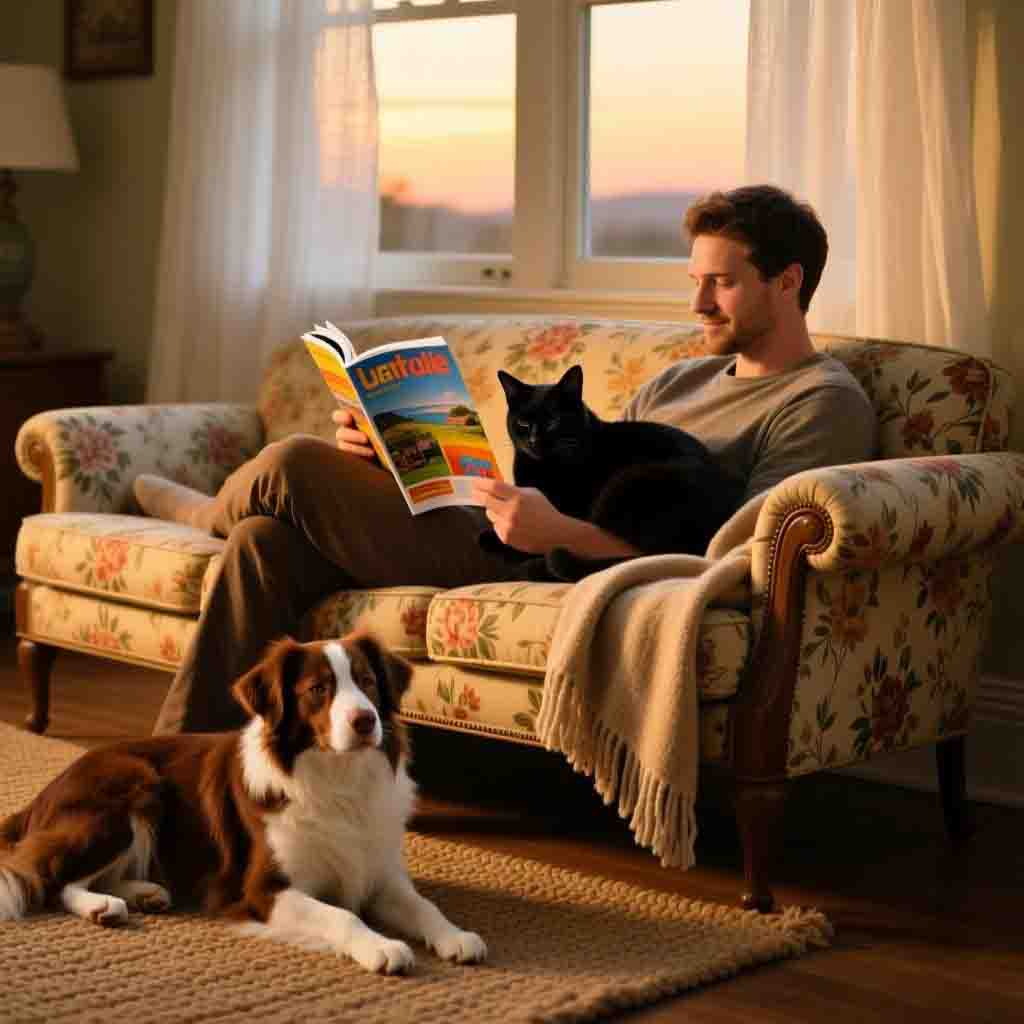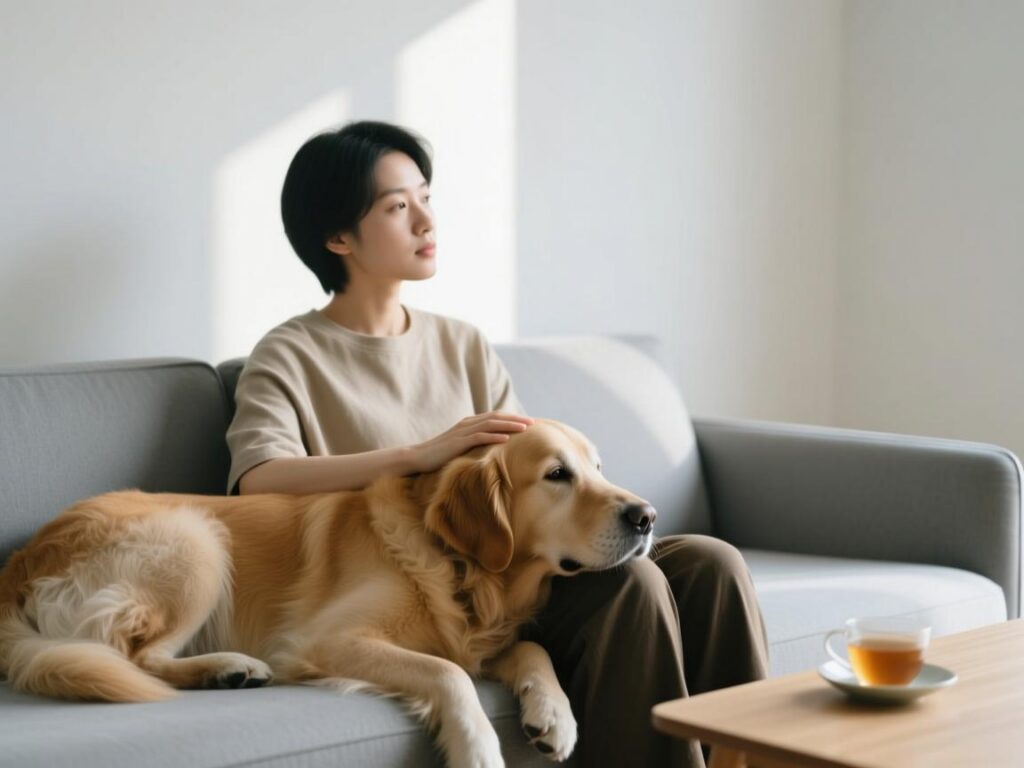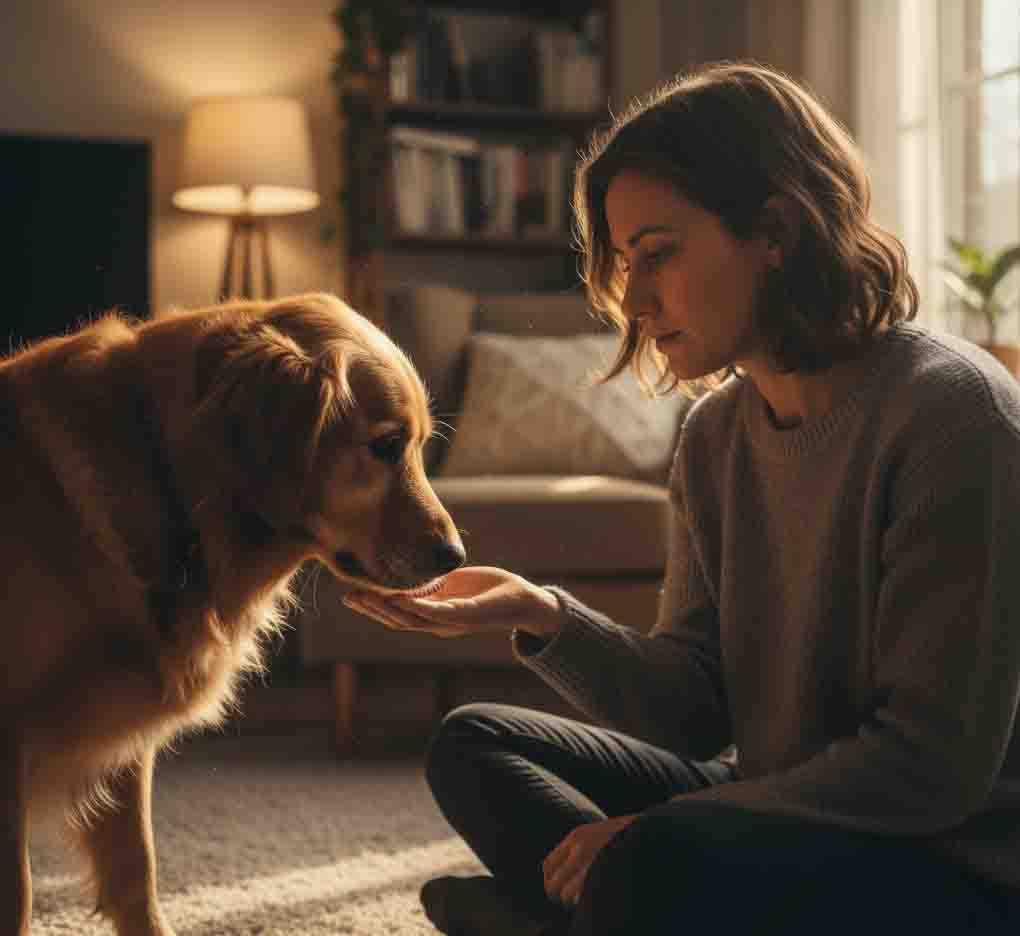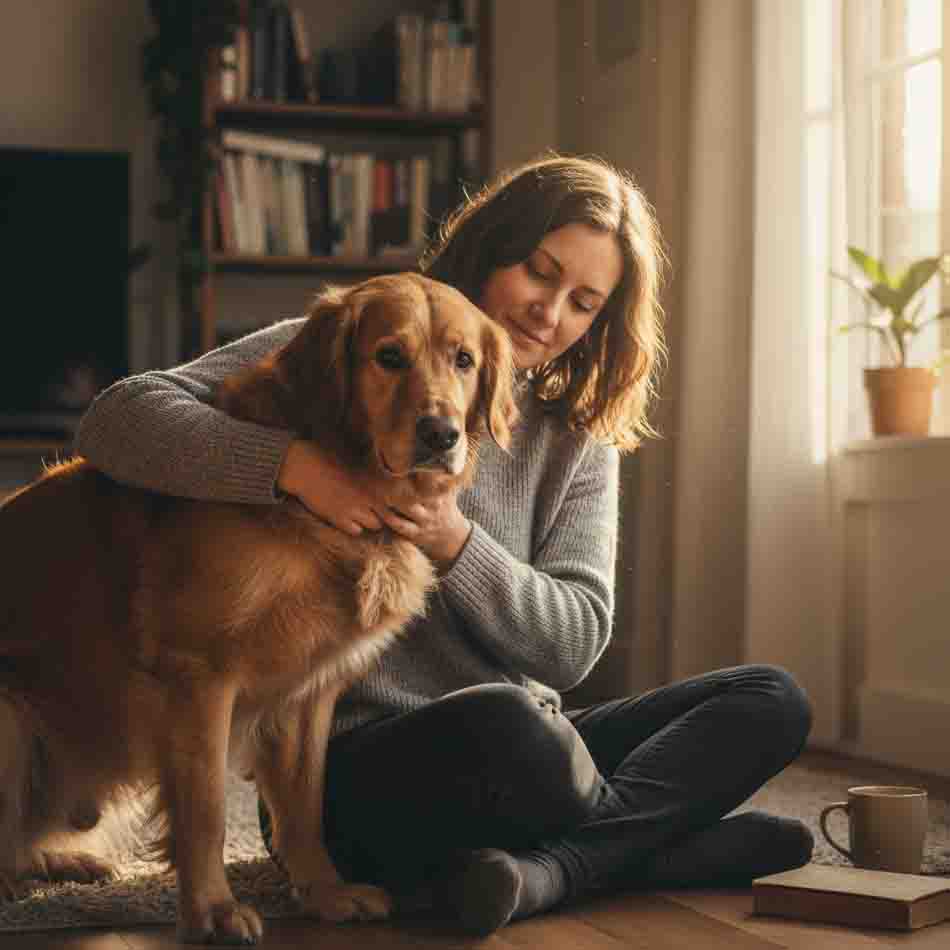It’s more than just cuddles. It’s a quiet understanding that lives in the space between words. Why does the simple act of a cat purring on your lap or a dog resting its head on your foot feel so profoundly meaningful?
We’re exploring the heart of the connection we share with our animals.
1. Why does coming home to a pet feel so different than coming home to an empty house?
The Science of Shared Existence:
An empty house is a monologue. A home with a pet is a dialogue. You are expected. Your presence is an event. This isn’t just sentiment; it’s neurochemistry. That joyful greeting triggers a release of oxytocin (the “bonding hormone”) in both you and your pet. This biochemical exchange reinforces a positive feedback loop: your return brings joy, and witnessing that joy strengthens your sense of being anchored and significant.
It’s the difference between being a resident and being a landmark in a beloved world.
2. Is my pet really tuned into my emotions, or am I imagining it?
Beyond Commands: The Emotional Mirror:
You are not imagining it. Your pet is a master of reading the subtle symphony of your being—your posture, your scent, the rhythm of your breathing. When you are anxious, your body releases stress hormones like cortisol, which your dog can detect. Your cat may notice the tension in your muscles as you hold them.
They may not understand the concept of a “deadline,” but they understand the physical language of stress. Their response—a gentle nudge, a calming purr, a head laid in your lap—is a direct, instinctual reaction to the emotional weather you are projecting.
3. What is it about a pet’s love that feels so… uncomplicated?
The Gift of Unconditional Presence:
Human relationships are a tapestry of spoken and unspoken expectations. A pet’s companionship offers a different kind of connection. It isn’t contingent on your career success, your mood, or what you said yesterday. They offer “unconditional positive regard.”
This doesn’t mean they don’t get upset, but their grievances are simple and momentary. There is no grudge, no complex judgment. This simplicity is a form of psychological rest for our over-stimulated brains. In their eyes, your fundamental worth is never in question.
4. Why does the loss of a pet cut so deeply?
The Silence of a Shared Language:
Grieving a pet is the process of mourning a unique dialect that only the two of you spoke. It’s the loss of a consistent, non-judgmental witness to your daily life. The depth of your grief is a direct measure of the richness of that shared world. The empty space on the couch isn’t just a missing animal; it’s the absence of a ritual, a silent conversation partner, a source of uncomplicated comfort.
This pain is the final, heartbreaking testament to the significance of the bond you shared.
5. How can I consciously deepen this bond?
Moving Beyond Coexistence:
-
Observe Their World: Spend five minutes just watching your pet. What do they sniff? Where do they nap? See the world through their senses.
-
Learn Their “Yes” and “No”: Respect when they’d rather not be petted. Honor their preferences. Consent builds immense trust.
-
Create Micro-Rituals: A specific scratch behind the ears when you pour your morning coffee, or a quiet moment together when you get home. These tiny, predictable acts of connection are the building blocks of trust.
This bond is a quiet language. It’s not spoken with words, but with presence, with patience, and with the courageous act of loving a creature whose life is tragically, beautifully shorter than our own.
Reflect: What is a moment when you felt truly, deeply understood by your pet?





